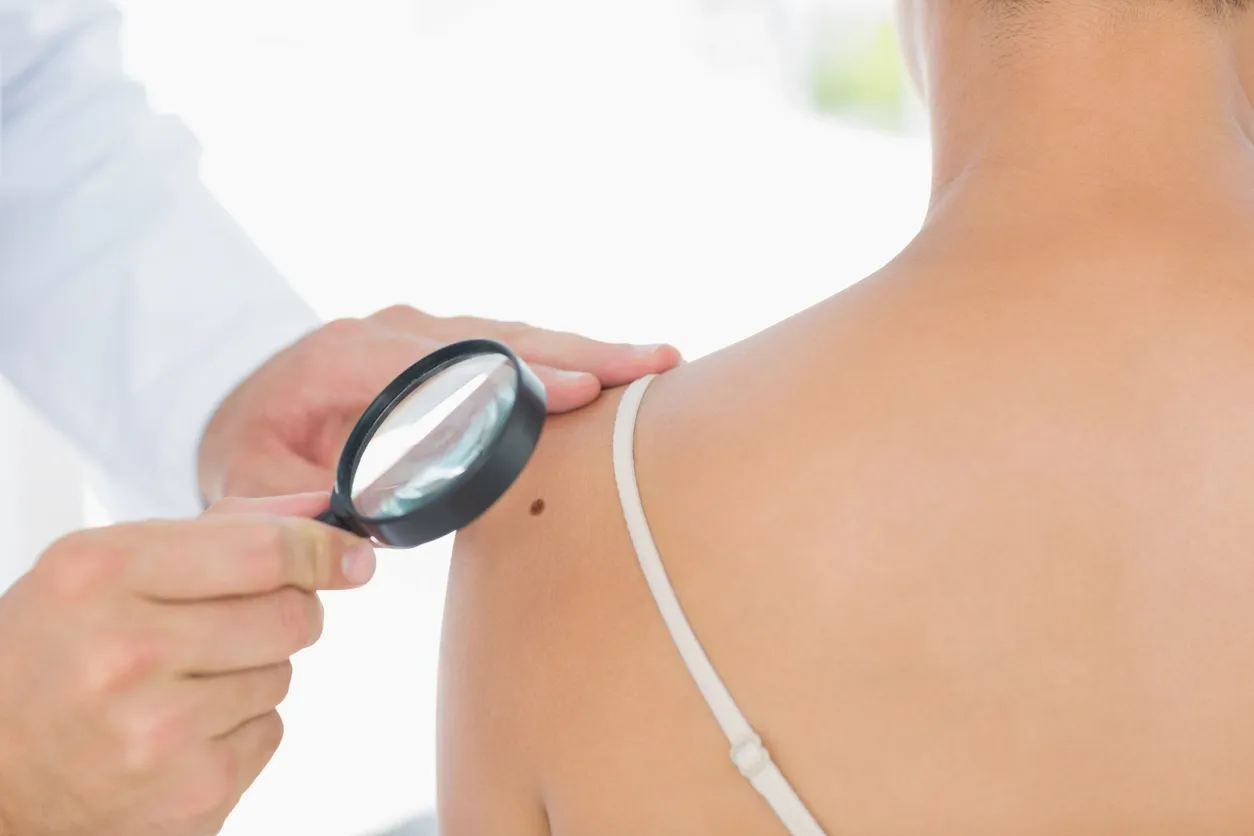The Importance of Regular Skin Cancer Screenings

Skin cancer is the most common form of cancer in the United States, affecting millions of people each year. Despite its prevalence, many cases can be effectively treated when detected early. Regular skin cancer screenings are crucial in early detection and prevention, potentially saving lives and preserving skin health. This comprehensive guide will explore why these screenings are essential, what to expect during an examination, and how to protect yourself from skin cancer.
Understanding Skin Cancer
Types of Skin Cancer
Skin cancer occurs when mutations develop in the DNA of skin cells, causing them to grow uncontrollably. The three most common types are:
- Basal Cell Carcinoma (BCC): This cancer arises from the basal cells in the lower epidermis and often appears as a pearly bump.
- Squamous Cell Carcinoma (SCC): This cancer originates in the squamous cells and may present as a scaly red patch or open sore.
- Melanoma: The most dangerous form, developing in the melanocytes, can resemble a mole and is prone to spreading.
Understanding the differences between these types is important for recognizing potential warning signs and seeking prompt medical attention.
Causes and Risk Factors
Several factors increase the risk of developing skin cancer:
- Ultraviolet (UV) Radiation: Prolonged exposure to UV rays from the sun or tanning beds damages skin cells.
- Fair Skin: Less melanin means less natural protection against UV radiation.
- Family History: Genetics can play a role in susceptibility.
- Age: Risk increases with age due to cumulative sun exposure.
- Previous Skin Cancer: A history of skin cancer elevates the likelihood of recurrence.
By being aware of these risk factors, individuals can take proactive steps to mitigate their chances of developing skin cancer.
Why Regular Skin Cancer Screenings Are Essential
Early Detection Saves Lives
One of the most compelling reasons for regular skin cancer screenings is the potential to catch cancer in its earliest stages. Early detection significantly increases the effectiveness of treatment, particularly for melanoma, which can be life-threatening if not addressed promptly. Regular screenings enable dermatologists in LA and elsewhere to identify suspicious lesions before developing into more severe conditions.
Identifying Pre-Cancerous Lesions
Screenings can also detect actinic keratoses—pre-cancerous spots caused by sun damage. Treating these lesions early can prevent them from progressing to squamous cell carcinoma. Regular check-ups invest in your long-term health, allowing for early intervention and better outcomes.
What to Expect During a Skin Cancer Screening
The Screening Process
A skin cancer screening is a straightforward, non-invasive examination performed by a dermatologist. During the appointment:
- Medical History Review: The dermatologist will discuss your health history, including any previous skin issues or family history of skin cancer.
- Full-Body Examination: You’ll be asked to change into a gown so the dermatologist can examine your skin from head to toe, including hard-to-see areas like the scalp and soles of the feet.
- Documentation: Photographs of suspicious moles or spots may be taken to monitor changes over time.
- Biopsy: A small sample may be taken for laboratory analysis if an abnormal area is found.
The procedure is typically quick and painless, providing peace of mind or early detection if issues are found.
Frequency of Screenings
The recommended frequency of skin cancer screenings varies based on individual risk factors:
- High-Risk Individuals: Those with a family history or previous skin cancer should consider annual screenings.
- General Population: Adults should have a baseline screening in their 20s or 30s and follow up as their dermatologist advises.
Regular self-examinations between professional screenings are also encouraged to monitor any changes in your skin.
Who Should Get Regular Skin Cancer Screenings
High-Risk Individuals
Certain people are at higher risk and should prioritize regular screenings:
- Fair-Skinned Individuals: Less natural UV protection increases risk.
- Those with Many Moles: A higher number of moles can mean a greater risk of melanoma.
- History of Sunburns: Especially blistering sunburns during childhood.
- Immunosuppressed Patients: Weakened immune systems can reduce the body’s ability to fight off cancer cells.
General Recommendations
Even if you don’t fall into a high-risk category, skin cancer can affect anyone. Regular screenings are a proactive measure to maintain skin health. Early detection is key, and professional evaluations are more thorough than self-examinations alone.
Prevention and Protection Strategies
Sun Safety Tips
Protecting your skin from UV radiation is the most effective way to prevent skin cancer:
- Use Broad-Spectrum Sunscreen: Apply SPF 30 or higher daily, even on cloudy days. Learn more about choosing the right sunscreen.
- Wear Protective Clothing: Long sleeves, wide-brimmed hats, and UV-blocking sunglasses.
- Seek Shade: Avoid sun exposure between 10 a.m. and 4 p.m. when UV rays are strongest.
- Avoid Tanning Beds: Artificial UV radiation is as harmful as natural sunlight.
Implementing these strategies can significantly reduce your risk of developing skin cancer.
Regular Self-Examinations
Between professional screenings, perform monthly self-examinations:
- Use Mirrors: Check all areas of your body, including your back and scalp.
- Follow the ABCDE Rule: Look for Asymmetry, Border irregularity, Color variation, Diameter larger than 6mm, and Evolving shape or size.
- Note Changes: Keep track of new or changing moles or spots and report them to your dermatologist.
Regular self-checks complement professional screenings, enhancing early detection efforts.
Treatment Options for Skin Cancer
Mohs Surgery and Its Benefits
Mohs surgery is a highly effective treatment for certain types of skin cancer. It involves removing thin layers of cancerous tissue and examining them until only cancer-free tissue remains. This precise method preserves as much healthy skin as possible. At Dr. Janet Vafaie’s clinic, we specialize in Mohs surgery, offering patients a high cure rate and excellent cosmetic results.
Other Treatment Modalities
Depending on the type and stage of skin cancer, other treatments may include:
- Excisional Surgery: Cutting out the cancerous tissue and some surrounding healthy skin.
- Cryotherapy: Freezing cancer cells with liquid nitrogen.
- Topical Medications: Creams or ointments applied directly to the skin.
- Radiation Therapy: Using high-energy rays to target cancer cells.
Your dermatologist will recommend the most appropriate treatment based on your specific condition.
Choosing the Right Dermatologist
Expertise and Experience
Selecting a qualified dermatologist is essential for effective skin cancer screening and treatment. Look for professionals with specialized training and experience in skin cancer management. At Dr. Janet Vafaie’s clinic, our team is dedicated to providing comprehensive care, from prevention to advanced dermatology treatments.
Importance of Board Certification
Board-certified dermatologists have undergone rigorous training and examinations. This certification ensures they possess the expertise to diagnose and treat skin conditions accurately. Trusting your skin health to a certified professional provides peace of mind and the highest standard of care.
Frequently Asked Questions
How often should I get a skin cancer screening?
Answer: If you’re at high risk, it’s recommended that you have a professional skin cancer screening at least once a year. Otherwise, consult your dermatologist for personalized advice based on your risk factors.
What are the warning signs of skin cancer?
Answer: Look for new or changing moles or spots that exhibit asymmetry, irregular borders, multiple colors, a diameter larger than 6mm, or any evolution in size or shape.
Does skin cancer only affect sun-exposed areas?
Answer: While common on sun-exposed skin, skin cancer can develop anywhere, including areas not typically exposed to sunlight.
Is skin cancer treatable?
Answer: Yes, especially when detected early. Treatments like Mohs surgery have high success rates. Learn more about dermatologic treatment options.
Can children get skin cancer?
Answer: While rare, skin cancer can occur in children. It is important to protect children’s skin from UV exposure and monitor any skin changes.
External Resources
- American Academy of Dermatology: Skin Cancer Prevention and Detection
- Skin Cancer Foundation: Understanding Skin Cancer
Take Charge of Your Skin Health Today
Regular skin cancer screenings are vital to maintaining overall health. Early detection increases the chances of successful treatment and minimizes the impact on quality of life. We’re committed to providing exceptional care through comprehensive screenings and advanced treatment options.
Contact us today to schedule your skin cancer screening and take a proactive step toward protecting your skin health.
For more skin protection and care insights, visit our Tips & Articles page.
